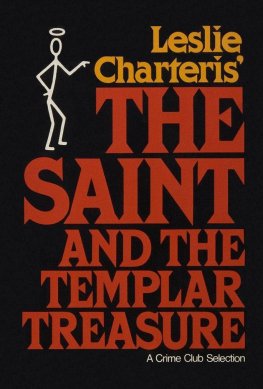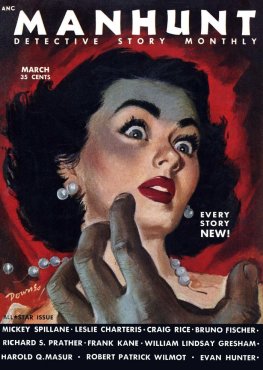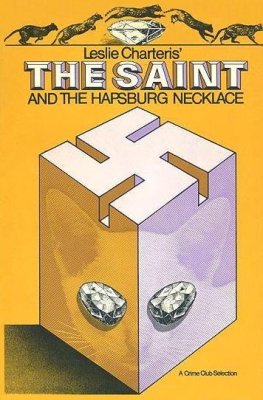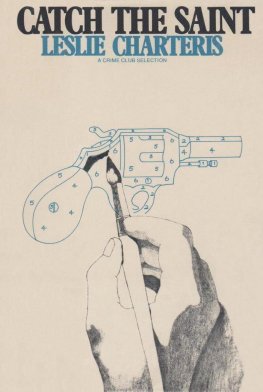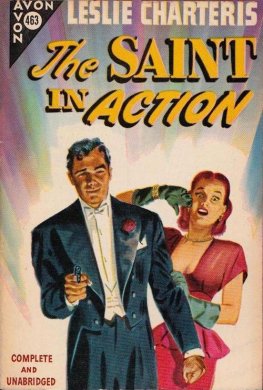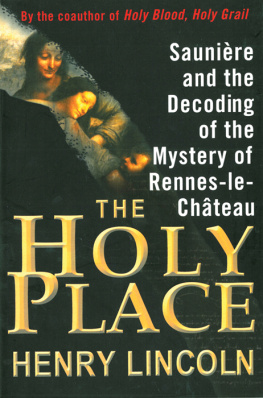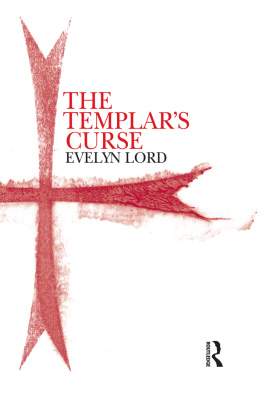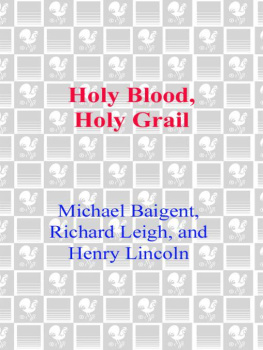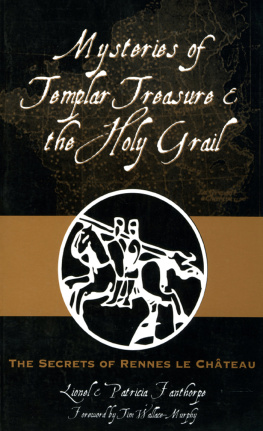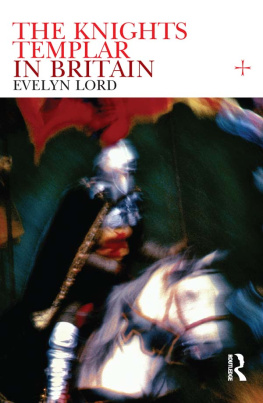Leslie Charteris
The Saint and the Templar Treasure
I
How Simon Templar discovered a Wine, and found himself Stuck with It
Serious bibbers of wine tend to come in two classes. Discounting those who differentiate between bottles only by the color of the contents, there are those who know a little and talk a lot, and those who know a lot and talk little. Simon Templar was numbered among the latter.
The mystique that so often surrounds the appreciation of wine left him cold. He was indifferent to which side of the hill the grape had flourished on. Knowledge of the shoe size of the head grape treader left him unmoved. He found the family antecedents of the vigneron of yawning interest. All he was really concerned about was that the quality should be outstanding, without fretting too much over the technical trivia through which the quality had been achieved.
Fine wines, like good food, beautiful women, elegant clothes, and fast cars, were facets of a life style to which he had happily become accustomed. He could survive without such trappings, but he saw no reason to do so if he could afford them. They helped to make life exciting and that was a spice that he demanded.
The liquid which he was transferring from bottle to glass, that afternoon in one of the infant years of what had been optimistically hailed as the new era of World Peace at Last when it was signed in 1945, certainly answered that criterion. The sommelier, who was also the mitre dhtel and the patron, had suggested and he had accepted a local product which he had never heard of before, and for him it was now a memorable discovery. He sipped again the deep red almost purple wine and savoured the strong fruity bouquet characteristic of the slopes of the Rhone. It was a taste that he would remember for the rest of his life; but at that moment he was blissfully unaware of what that chance sampling was destined eventually to involve him in and make itself totally unforgettable.
The wine was not the first new experience of the day. After leaving Avignon he had turned off the main road to wander through the back lanes of the countryside in search of a restaurant which had been recommended to him by a friend of impeccable discrimination, one of those epicurean hideaways to be found dotted around France whose whereabouts are the jealously guarded secret of an inner circle of gourmets, until somebody leaks it to the Guide Michelin, and the clientele and the prices take off on their inevitable escalade.
The building which he had finally found had previously been a water-mill and was set back from the road beside a narrow stream that gurgled under the now stationary water-wheel on its way down the valley towards the winding ribbon of the Rhone. The new owners had possessed the sense to keep the transformation simple. The dining area was a long high-ceilinged room that looked as if it had once served as a storehouse. The roof beams had been left rough and unstained, a few undemanding prints had been hung against the stone walls, and some rugs scattered across the flagged floor. The walls had been broken through to provide additional windows that allowed broad bands of sunlight to enter, while strategically placed electric fans kept the heat of the early autumn sun at bay.
In such a setting it was possible to concentrate on the important business of eating and drinking, unlike in so many pretentious restaurants where the purpose of the decor is to intimidate criticism of the cuisine and the tariff being paid for the privilege of eating it. The food had in fact justified everything that his discerning friend had claimed for it: The queues decrevisses aux morilles had been a delightfully delicate surprise, and the gigot la ficelle, boldly seasoned with herbs and garlic and roasted before an open wood fire, was worthy of an old-fashioned highwaymans appetite.
Except for a few accidental holidaymakers who had had the good fortune to stumble on the restaurant by chance, his fellow customers had a general air of more sophisticated self-indulgence than one would have expected to find in such a rural setting. At the next table a large florid man whose buttons showed the strain of many years of dedicated gluttony was chomping through a double helping of alouettes sur canap. Simon found the spectacle of such a big man devouring so many small birds both comical and sad, and turned his attention to the others in the room. Most of them, he guessed, must have made an excursion from one of the more important cities of Provence, if not from even farther afield, lured by the reports that circulated through the gastronomic grapevine.
Occasionally the other clients would glance across in their turn to where he sat, stare for a moment, and then return to their plates. There was something familiar about his face. Something slightly unsettling about the lean tanned features and the clear blue eyes with their light of mocking challenge. Something intangibly dangerous in the easy grace with which he sat alone in a corner, which might have reminded the more imaginative among them of a panther watching its prey at play before pouncing.
Simon Templar was resigned to arousing such interest. His days of anonymity were already somewhat past. His picture was to be found in the files of every major newspaper from New York to New Delhi and of every police department from Scotland Yard to Sydney filed not under T for Templar but S for Saint.
The same imaginative diner who sensed the predator behind his untroubled relaxation, even without identifying him, would probably have speculated on the reason for his presence; and the more fanciful assumptions would, as usual, have found most favour. But they would have been wrong, for the Saints sole motive was to enjoy the best of solid and liquid calories that would fuel the rest of his projected drive to St.-Tropez.
The Saint had been to Valencia with no more nefarious intent than to assess for himself the talent of the latest fenmeno of the bullring, a rising young matador whom he had been reading about; but, as he found so much pleasure in business that he felt no need to separate the two, it had proved a profitable vacation. A certain promoter of dubious real estate developments on the Costa Blanca, secure in the knowledge that the long arm of the British law could not touch him there, but who had forgotten that outlaws have an even lengthier reach, had costly reason to regret having been brought by chance to his notice. On the other hand, there had been Margarita, who would always have a happy memory but that is another story.
Simon had been driving back at a leisurely pace, allowing time to take in the sights along the way like any tourist. He had spent a day and a night in Avignon, where he had walked the battlements of the medieval walls, filled with other sight-seers, through the Cathedral of Notre-Dame-des-Doms and the palace of the Popes, and tried to theorize about what kind of dancing could have caused the collapse of the famous bridge. So much history had proved rather suffocating, and the uncluttered lanes of the countryside and the finding of the restaurant to which they had led him had been particularly welcome.
But now his watch told him it was time to be moving again, and he drained his glass with genuine regret. He declined coffee and cognac so that he could retain the lingering aftertaste of the wine, and asked for his bill.
While he waited he picked up the bottle and studied the label again. It was simple to the point of plainness. Just the name of the vineyard Chteau Ingare above the date of the vintage. The only decoration was a discreet family crest consisting of an open shield with a crusaders helmet in one half and an upright sword in the other. Since the name was completely new to him a surprising fact in view of the quality of the wine and his own empirical knowledge of the product of the region it could only have been a very limited but very special family affair, generating only enough for a select and exclusive distribution.

